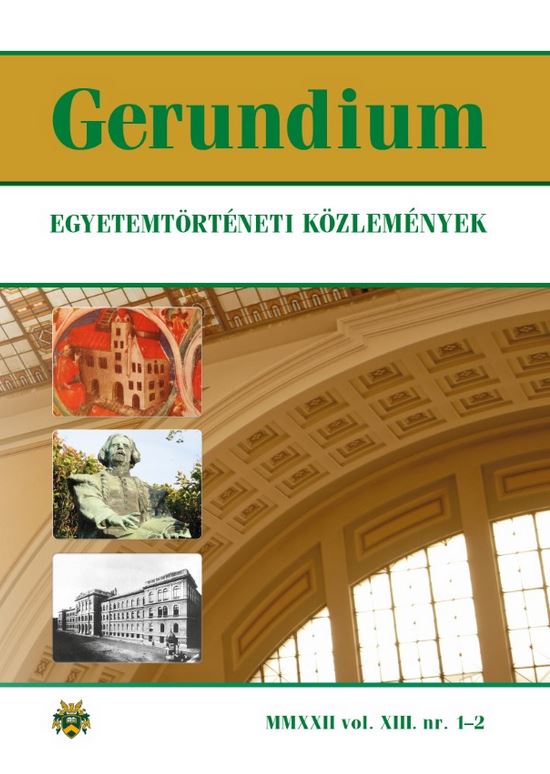„AD PINGUIOREM FORTUNAM” POOR HUNGARIAN STUDENT AT THE UNIVERSITY OF VIENNA UNTIL 1450
Author
View
Keywords
License
Copyright (c) 2022 Gerundium

This work is licensed under a Creative Commons Attribution 4.0 International License.
How To Cite
Abstract
A significant part of the Hungarian scholars at the University of Vienna between 1365/1377–1450 considered as poor students. From the nearly 3200 students almost 800 didn’t pay anything or could promise to be pay, however further 560 young people paid less than the prescribed taxes. In total 42,5% of them can be placed in different stages of poverty, but there were significant differences among them. This poverty although does not indicate their actual financial situation, only their financial condition in the time they were enrolled. The noteworthy political, military, or natural conflicts and phenomenon not necessarily affected them in their peregrination, only those which had influence on their financial situation. They can be divided into three groups. In the first can be found the non-paying students (pauper, nihil dedit). The second contains students with a little advantageous situation, namely who promised to pay the taxes (promisit, tenetur), or only asked a delay for fulfilling their obligation or an exemption from the regulated cloth-wearing. The third group concluded those who paid reduced taxes. Knowing their financial situation, the first two can be considered as pauperes, and the last is non bene habentes. Most of them came from the largest cities and towns (53%), however considerable the number of those who had a rural background (18%). Though their geographical origins do not shape a specific pattern, but their social background does.


 https://doi.org/10.29116/gerundium/2022/1-2/5
https://doi.org/10.29116/gerundium/2022/1-2/5





